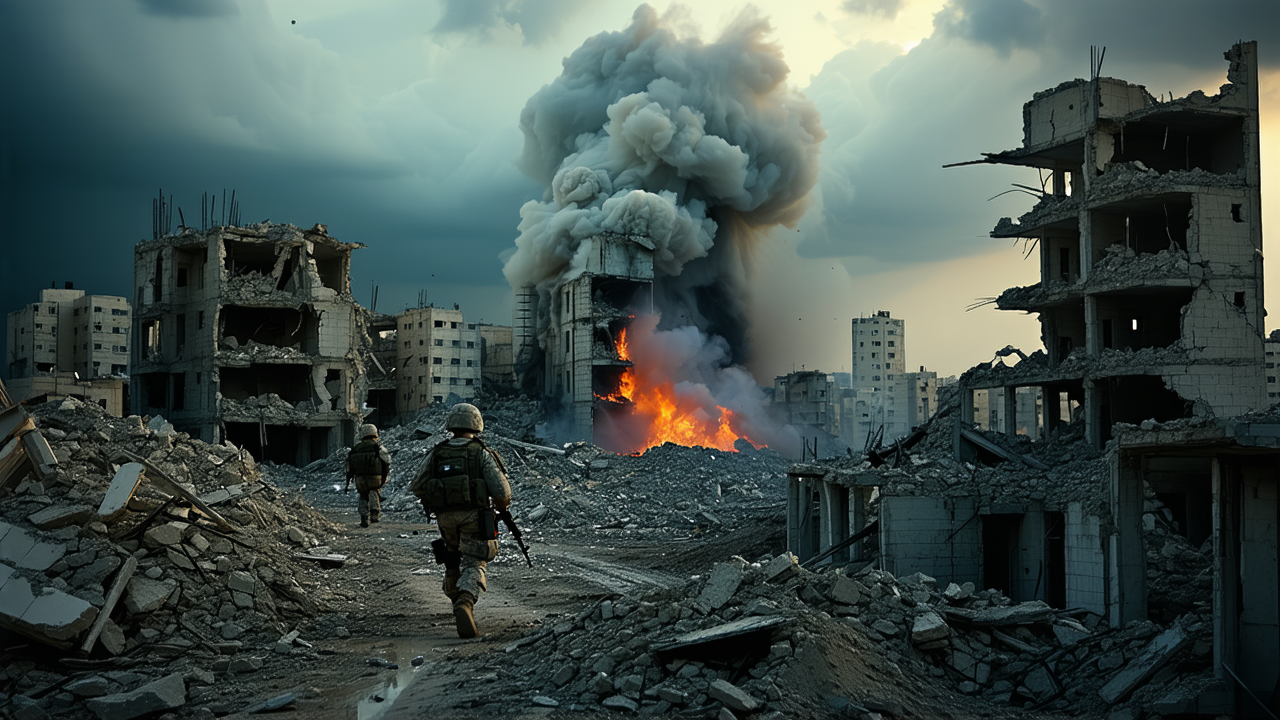Israel's Gaza City Occupation Marks a Shift in a Blood-Soaked, Condemned War That Didn't Achieve Its Aims
Israel's Gaza City Occupation Marks a Shift in a Blood-Soaked, Condemned War That Didn't Achieve Its Aims
In a dramatic escalation of the ongoing conflict, Israel has announced its intention to move beyond the current military operations in Gaza and establish full security control over the region. This shift has been widely criticized by international observers and human rights organizations, who argue that the occupation of Gaza City marks a departure from any meaningful path toward peace and stability.
From Disengagement to Reoccupation
The decision to take full control of Gaza City is reminiscent of Israel's 2005 disengagement from the Gaza Strip, which was initially hailed as a significant step toward peace. However, that move was later criticized for being more of a strategic maneuver than a genuine commitment to coexistence. Today, the situation is even more complex, with Israel now seeking to reassert control over a region that has been devastated by years of war.
A War Without End
The renewed military presence in Gaza is expected to displace up to a million people and could take three months to fully implement. This move comes at a time when the international community is increasingly concerned about the humanitarian crisis in the region. With over 60,000 Palestinians killed and much of the infrastructure destroyed, the occupation has failed to achieve its stated goals of eliminating Hamas or securing the release of Israeli hostages.
Escalation as a Last Resort
War correspondent Scott Anderson once posed a question that seems to echo through the halls of power in Israel today: “In contemplating all the lives already lost, the treasure squandered, how to ever admit it was for nothing?” The answer, according to many analysts, is to escalate further, even if it means deeper entanglement in a conflict with no clear resolution.
The Cost of Occupation
The decision to occupy Gaza is not without its consequences. As one Israeli opposition leader warned, if Israel annexes the region, it will be responsible for the lives and livelihoods of 2 million Palestinians. This includes funding their electricity and water, building schools and hospitals, and ultimately paying the price for a failed policy.
A Global Condemnation
The international community has largely condemned Israel's plan to seize control of Gaza City. Even within Israel, there are growing concerns that the occupation could lead to a protracted conflict with no end in sight. The Jerusalem Post, a conservative-leaning newspaper, has warned that occupation typically breeds cycles of violence rather than peace.
What Comes Next?
As the conflict continues, the world watches closely. The stakes are high, and the cost of inaction is becoming increasingly clear. Whether Israel's plan to reoccupy Gaza will lead to a new era of stability or further bloodshed remains to be seen. But one thing is certain: the road to peace has never been more uncertain.
